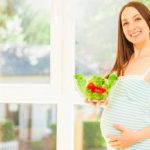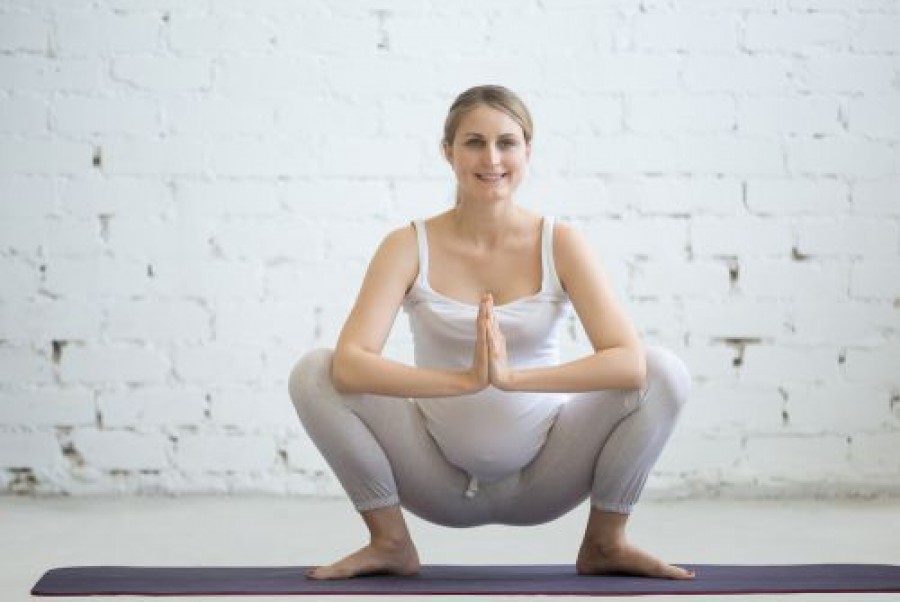Pregnancy And The Vegan Diet
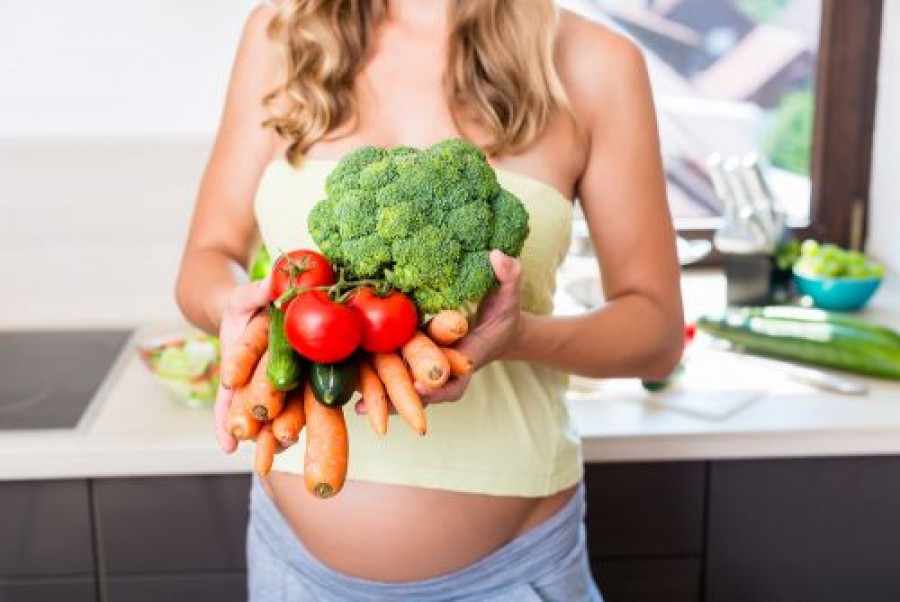
If you’re vegan and pregnant you might be wondering whether it’s safe to maintain a vegan diet while carrying a baby. Family, friends and doctors may even question your decisions, asking how you’ll attain essential nutrients that are found in animal products. However, you don’t have to give up your vegan diet while pregnant, but there are things to consider to maintain overall health for both you and your baby.
What is veganism?
Veganism eliminates all animal products from one’s lifestyle – including products like shampoo, make up or cleaning products that have been tested on animals. Usually, people are vegan for two reasons – the belief that animals are living beings and shouldn’t be consumed, or for health reasons (fat content found in animal products). Whatever the case, veganism has grown increasingly popular, with more people adopting vegan methods into their daily diet, even while living a non-vegan lifestyle.
I’m vegan and pregnant! What nutrients will I need?
1. Protein and Iron
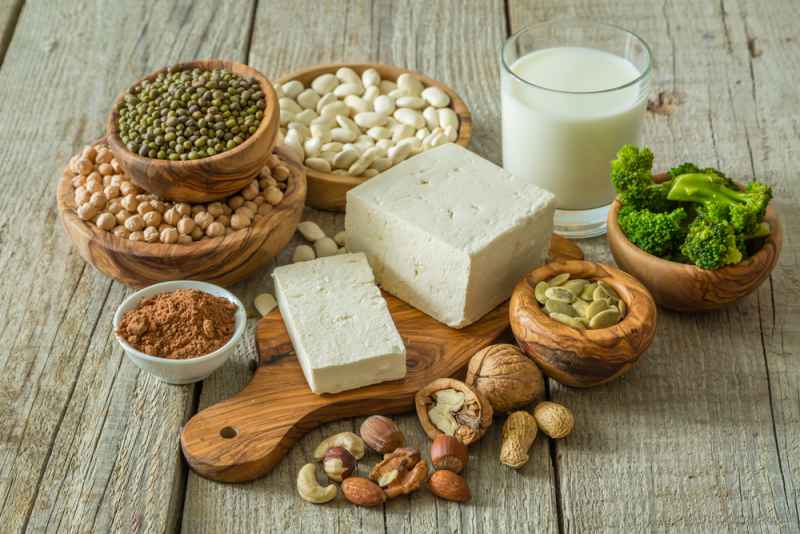
Meat provides a large amount of iron and natural fat that is beneficial while pregnant, especially because iron can drop to dangerous levels and cause anemia. If you’re still eating dairy and eggs (vegetarian), you’ll most probably be getting a sufficient amount of protein from these rich sources. Otherwise, there are veggie-based and wholefood options that can be incorporated into your daily diet:
- Lentils (legumes)
- Wholegrains
- Soy products (tofu, soy milk and soy cheese)
- Nuts
- Seeds
- Chickpeas
- Kidney beans
- Quinoa
- Pasta
- Nut butters
- Miso
- Olives
How much do I need? Non-vegan persons usually consume around 65 grams of protein per day. Keep an eye out for your overall health though and don’t stress too much about numbers. If you’re feeling good, putting on weight and are eating often, you’re most likely eating enough protein.
2. Calcium
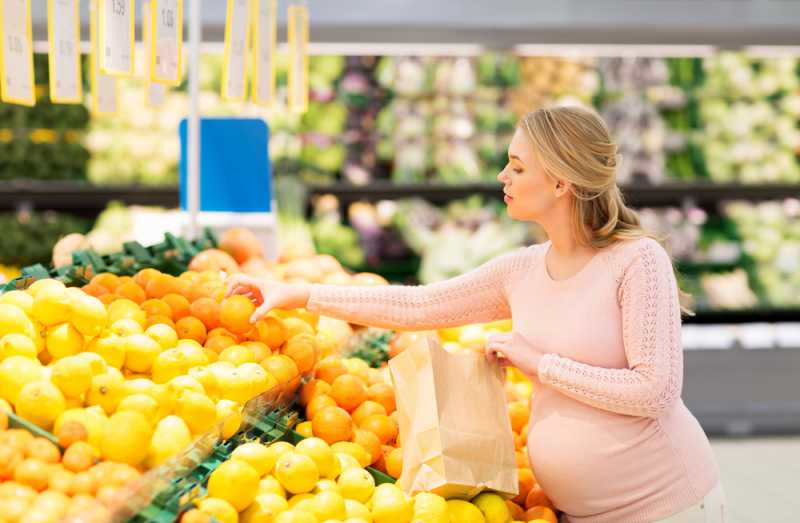 Like protein, calcium is another vital nutrient you’ll need to bear in mind for the development of your baby’s bones and organs, particularly as the third trimester approaches. Low calcium can also put you at risk of osteoporosis at a later stage in your life. You can also take calcium supplements if you’re not getting enough from natural food sources.
Like protein, calcium is another vital nutrient you’ll need to bear in mind for the development of your baby’s bones and organs, particularly as the third trimester approaches. Low calcium can also put you at risk of osteoporosis at a later stage in your life. You can also take calcium supplements if you’re not getting enough from natural food sources.
- Green leafy vegetables like: kale, pakchoi, okra, broccoli
- Cauliflower
- Dried figs
- Chia seeds
- Almonds
- Pinto beans, red beans, white beans
- Tofu and soy milk and cheese
- Oranges
How much do I need? Pregnant vegans should aim for eight or more servings of calcium-rich foods per day. You can also get a supplement if needed, but ask your doctor first.
3. Vitamins D and B12
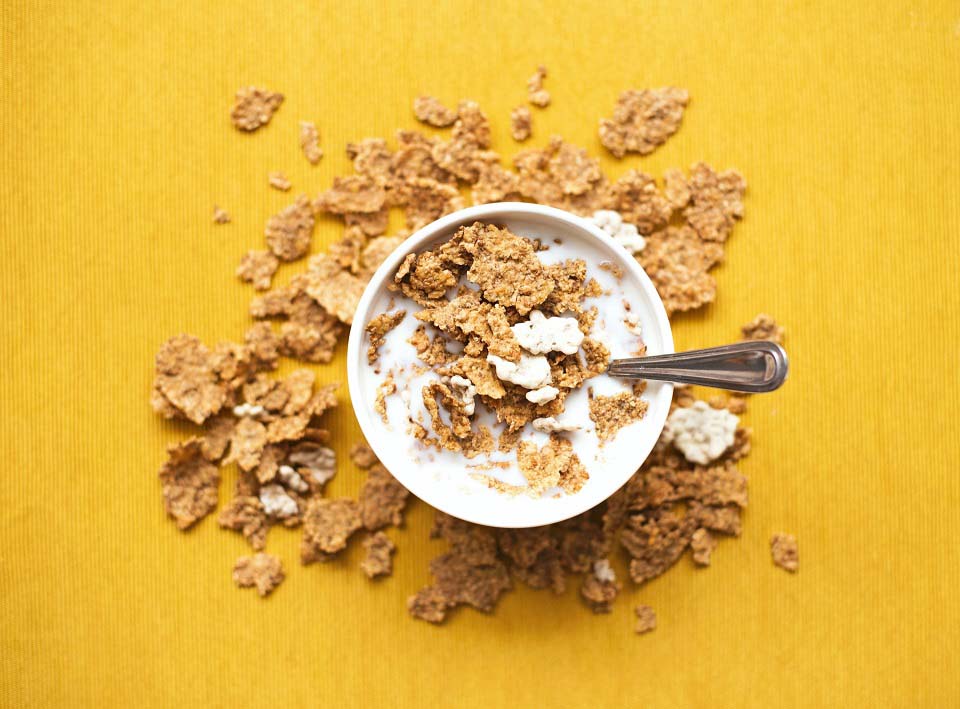 B12 works alongside folic acid for foetal brain development. A deficiency can cause neural tube defects and an increased risk of preterm labour (although B12 deficiencies are rare). What to eat:
B12 works alongside folic acid for foetal brain development. A deficiency can cause neural tube defects and an increased risk of preterm labour (although B12 deficiencies are rare). What to eat:
- Vitamin B12 supplement
- Fortified cereals
- Nutritional yeast
- Meat substitutes
Vitamin D is actually a crucial vitamin needed for building and maintaining overall health, as well as mental well-being which can be affected during pregnancy because of hormone shifts. Vitamin D deficiencies can cause weak and soft bones, which can lead to skeletal issues, bone fractures in babies and poor growth. Although vitamin D is found in foods like fish and dairy, you can also achieve a healthy dose of it by spending time in the sun each day – although this can be a problem if you live in cooler climates.
- A vitamin D supplement may be suitable while pregnant
- Soy products
- Mushrooms
- Fortified almond milk
How much do I need? Pregnant vegans who are getting regular sunlight exposure daily should have adequate levels of vitamin D. However, it’s best to get a blood test to be sure you’re not on the lower spectrum; otherwise a supplement may be needed.
Veganism risks while pregnant
Although eating a vegan diet is doable while pregnant, you have to ensure you’re eating a lot of the right foods (meat and dairy substitutes) throughout the day. If you don’t follow a nourishing vegan diet, you and your baby will be at risk of:
- Vitamin deficiencies
- Spinal bifida because of low levels of B12
- Nervous system problems
- Low birth weight
- Hypospadias
- Osteoporosis
- Preterm labour
How to prevent these risks?
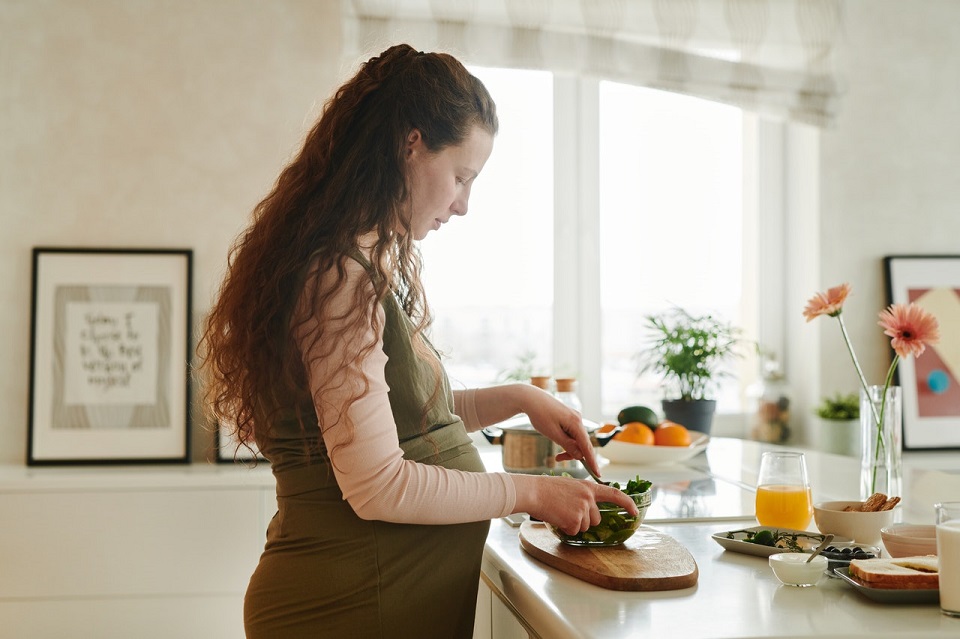 Eat sensibly to prevent any health risks while pregnant and vegan by:
Eat sensibly to prevent any health risks while pregnant and vegan by:
- Eating a well-balanced diet
- Taking prenatal vitamins each day
- Visiting your doctor for regular appointments
Veganism and breastfeeding
Just like pregnancy, breastfeeding is no different and eating a vegan diet can be done, if done right. However, if your baby was born prematurely, with any health conditions and illnesses, or defects, you’ll want to get expert advice on the recommended foods or supplements that are required. This is extremely relevant if you’re considering raising your child vegan.
Vegan diet tips
- Nausea and vomiting are common symptoms during the first trimester, so you’ll need to eat often to avoid hunger that can make you feel worse.
- Lack of time can be a problem that can cause you to skip meals – which isn’t particularly good if you’re vegan – use convenient foods like: canned beans, frozen vegetables, pre-chopped vegetables, and mixes.
- Convenient cooking methods make it easier to eat properly while doing other activities: crockpots, pressure cookers, slow cookers and casseroles – make bigger batches of food for leftovers later in the day or during the week.
A vegan lifestyle while pregnant isn’t dangerous if you are taking the right dietary steps, even while breastfeeding. Health issues that occur because of a vegan diet are usually due to significant vitamin deficiencies or prior health issues that put a baby at risk of developing further problems as a foetus and after birth. If you’re concerned that you’re not getting enough nutritional value from a vegan diet, it’s best to talk to a medical professional who can direct you to the right supplements. Otherwise, many vegans include dairy and eggs during their pregnancy and eliminate them again after their baby is born.

